Archive
24 June 2024
Miriam Blaauboer is Applied Sciences’ Educator of the Year 2024
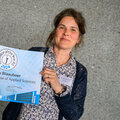
Miriam Blaauboer has been elected Educator of the Year 2024 of the Faculty of Applied Sciences (AS). She received the award on 17 June 2024 during the faculty's annual Education Day. Here, Director of Education Chris Kleijn also announced the Educators of the Year for each programme. The seven nominated lecturers were chosen by AS students. Miriam will represent the AS faculty at Delft University of Technology's upcoming Educator of the Year election.
07 June 2024
Spring Symposium 2024 showcases AI education
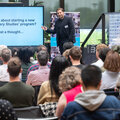
A line-up of interesting keynotes and workshops about AI Education captivated the audience on Tuesday June 4th during the fourth yearly Spring Symposium organised by TU Delft AI Initiative. From the fields of law and architecture to physics – a variety of disciplines were discussed, each showing how AI is a game changer for the future of their respective fields and the consequences this has for the education of the future. This underscores the importance of considering AI education across the whole university.
05 June 2024
The mysterious microscope from Jena

In the back of a cupboard at the Imaging Physics department of the Faculty of Applied Sciences (TNW) at TU Delft, a box full of interesting objects had hiding for almost thirty years. Nestled amongst prisms and scopes, was a mysterious microscope.
28 May 2024
Paper Pitch: More efficient solar cells

Did you know that solar cells typically convert only 20% of the sunlight into electrical power? That means that 80% is not utilised, leaving a large room for improvement for next generation solar cells. Researchers from Delft University of Technology developed a method to find new materials for more efficient solar cells.
27 May 2024
NWO Summit Grant to investigate fundamental quantum limits
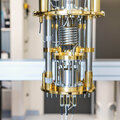
A research consortium from TU Delft and Leiden University receives an NWO Summit Grant of 35 million euros, as a long-term support and to continue their prominent role internationally. They aim to investigate the fundamental limits of quantum physics. In total five consortia from different Dutch universities will receive a total of 188 million euros to strengthen the position of Dutch science.
23 May 2024
Creating life from lifeless biomolecules with AI and lab evolution
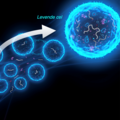
“What is life? How does a living cell emerge from lifeless molecules?” wondered a multidisciplinary team of Dutch scientists. To answer these questions the research team, led by the TU Delft, aims to build a living synthetic cell from lifeless biomolecules, using laboratory evolution and artificial intelligence for the first time. The ten-year research programme to do so, entitled “Evolving life from non-life” or simply “EVOLF”, was awarded 40 million euro by the Dutch Research Council (NWO) as part of the Summit grants scheme.
16 May 2024
Gijsje Koenderink appointed as KNAW member
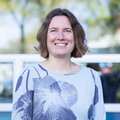
The Royal Netherlands Academy of Arts and Sciences (KNAW) has selected Gijsje Koenderink as new KNAW member. She will join the Academy together with 16 other leading scientists. The new members will be installed on 30 September 2024.
16 May 2024
Cees Dekker wins Sackler Prize
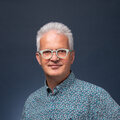
Prof. dr. Cees Dekker wins the Sackler International Prize in Biophysics for his seminal contributions to single-molecule biophysics, including the application of nanotechnology to biological systems, developing single-molecule techniques leading to breakthroughs in DNA and protein sequencing with nanopores, novel insights in DNA-protein interactions and chromosome organisation, and experimental demonstration of DNA loop extrusion predicted by Prof. Mirny, as well as the development of synthetic cells.
15 May 2024
From flocs to granules: new opportunities for wastewater treatment
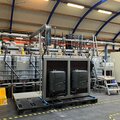
On 16 May, Viktor Haaksman will defend his doctoral thesis at the Faculty of Applied Sciences at TU Delft. Together with a large public-private consortium, he developed granular sludge technology that allows existing wastewater treatment plants to increase their capacity without large-scale new construction.
08 May 2024
Disorder improves battery life

What determines the cycle life of batteries? And, more importantly, how can we extend it? An international research team led by TU Delft has discovered that local disorder in the oxide cathode material increases the number of times Li-ion batteries can be charged and discharged. Their results have been published in Nature.